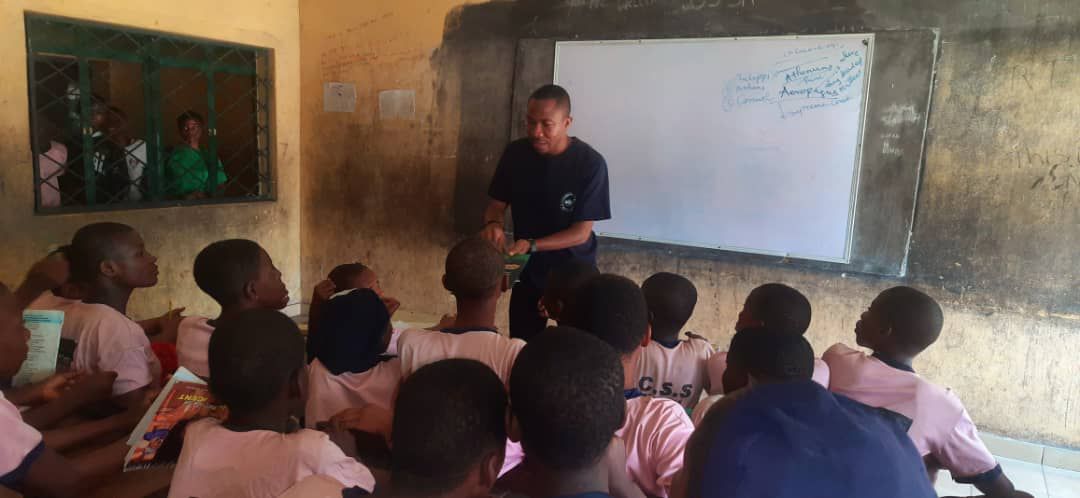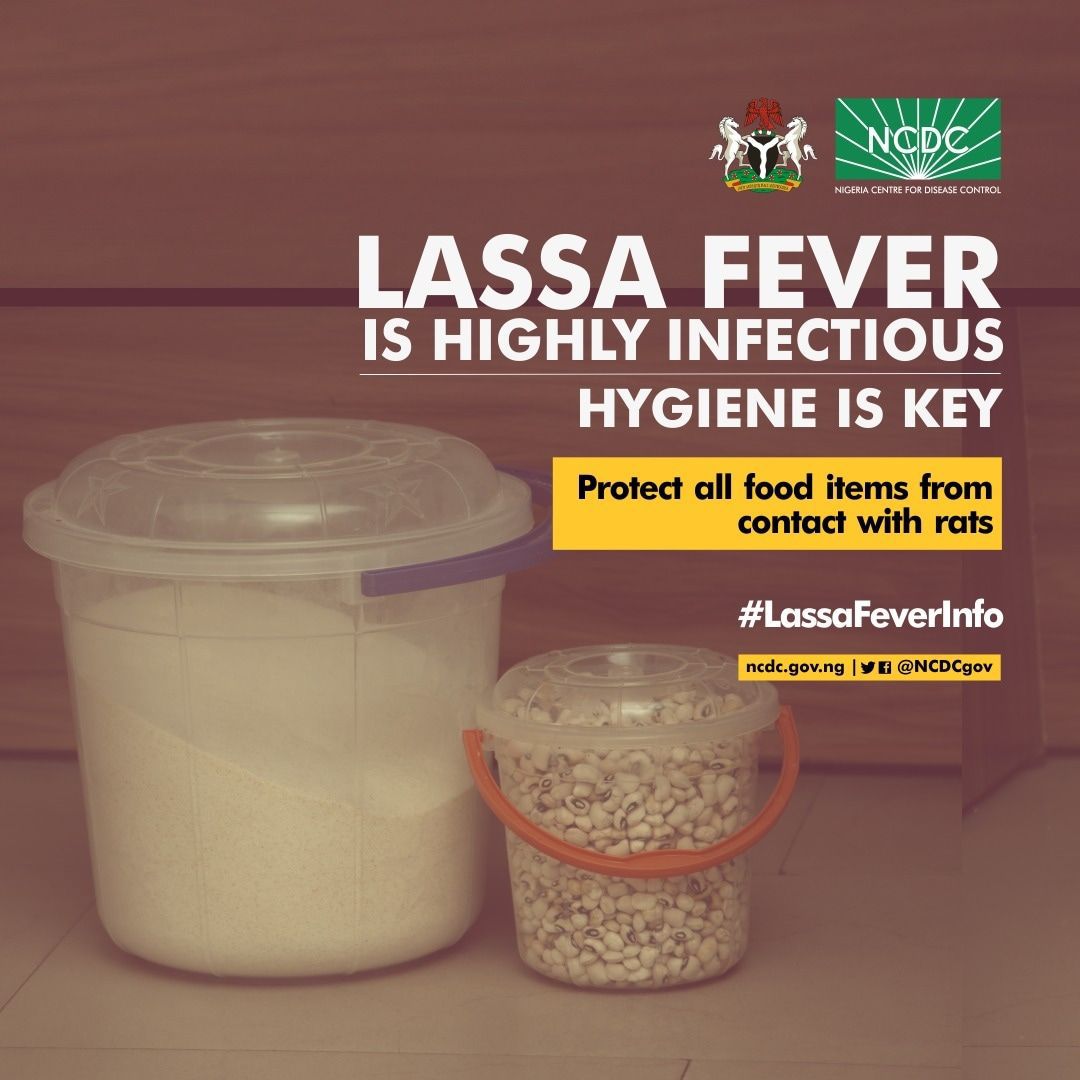
By Smith Nwokocha
Smith Nwokocha, a Fellow of Media EIS Fellowship, visited students of Orogbum Secondary School in Port Harcourt and sensitize them on the outbreak of Lassa Fever in Rivers State. He explained to the students what Lassa fever is? Ways of Preventing Lassa fever and they should always keep an eye on NCDC’s website (ncdc.gov.ng ), and Social Media handles on updates on the situation reports on Lassa Fever and other diseases outbreak that affect public health. Students were advised by the Fellow not to keep the information to themselves, but to also announce it to other students, their guardians, and parents, including religious leaders. He further encouraged the students to maintain a high level of hygiene, and ensure they help or support their parents/guardians/Communities in this regard.

According to World Health Organization (WHO), it opined that “Lassa fever is an acute viral haemorrhagic illness caused by Lassa virus, a member of the arenavirus family of viruses. Humans usually become infected with Lassa virus through exposure to food or household items contaminated with urine or faeces of infected Mastomys rats”.
Nigeria Centre For Disease and Control (NCDC) on twitter further elaborated that: Lassa Fever is as a result of viral hemorrhagic fever transmitted through contact with rats and early reporting to a health facility can save a life. Also, the Honourable Commissioner of Health Rivers State (Dr. Adaeze Chidinma Oreh), she further simplified it, that for Lassa Fever, It is important to note that Lassa Fever is spread by direct contact with infected faeces or urine of rats, while person to person transmission occurs mainly by contact with infected urine and blood of infected individuals. The common symptoms which manifest within about six to 21 days of the incubation period include: unexplained fever, rigours, cough, muscle pain, sore throat, facial swelling, weakness, diarrhea, constipation, seizures, deafness, and unexplained bleeding. The general public are advised to enjoined to the following including Health workers staying safe:
. Promote good community hygiene and prevent rodents from entering homes.
. Keep food and water covered to prevent contamination by rodents.
. Store grains and other foodstuff in rodent-proof containers.
. Dispose of garbage neatly and maintain clean households and environments.
. Do not dry food items in open places.
. Do not touch rats with bare hands.
. The use of alcohol-based hand sanitizers is recommended.
. Avoid direct contact with blood and body fluids while caring for sick persons.
. Remember to wash your hands with soap and water regularly.

Students were encouraged to visit NCDC Twitter handle to take a survey on Lassa Fever to assess the knowledge, attitudes, and practices individuals on Lassa Fever, using the survey link forms.gle/NMPMvb4N9hT92c…
According to Breakthrough Action-Nigeria in a tweet post; It was emphasized that Lassa fever can be gotten from a dead rat, so publics/healthcare workers are advised to dispose of it properly. Be extremely careful not to touch it directly and use a plastic bag to pick it up and bury it somewhere that no one would dig it up.
#PreventLassaFever
#LassaFever

